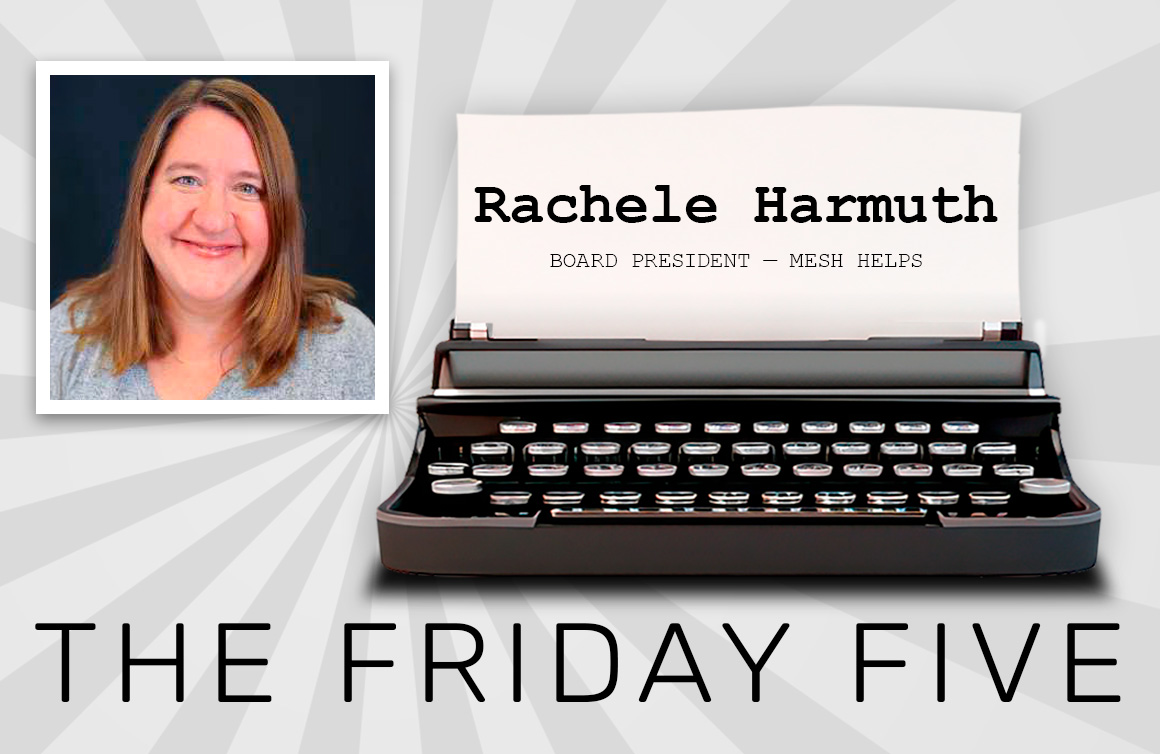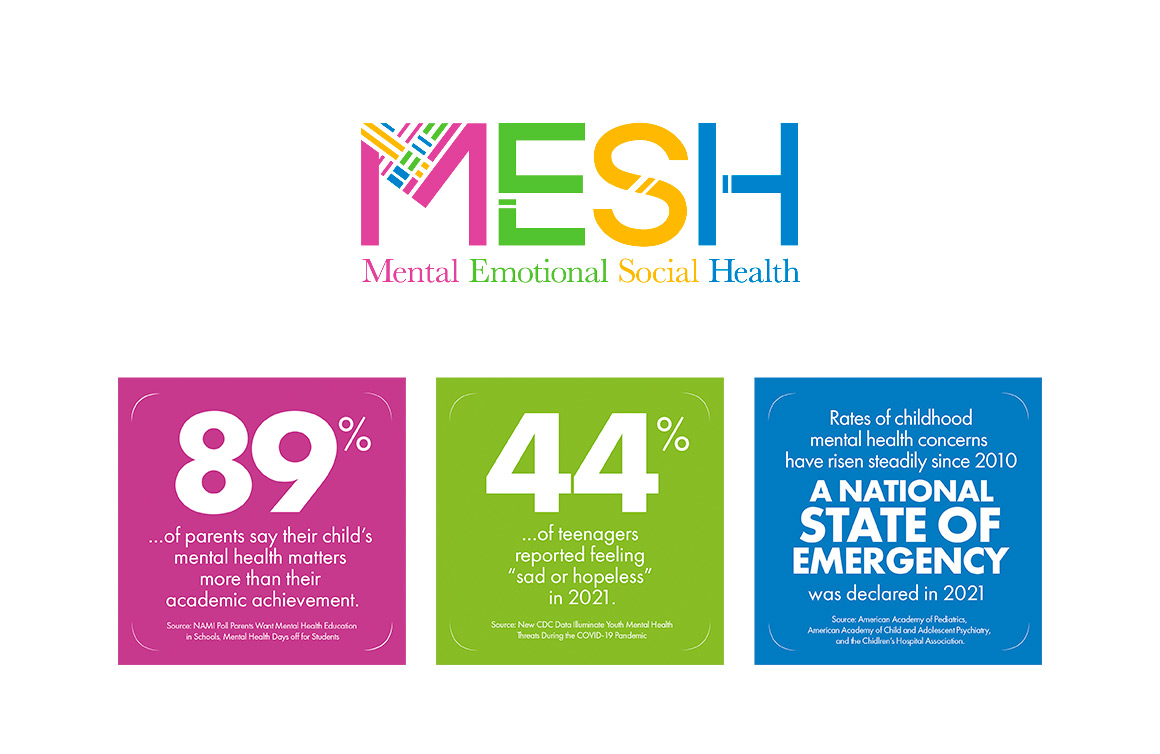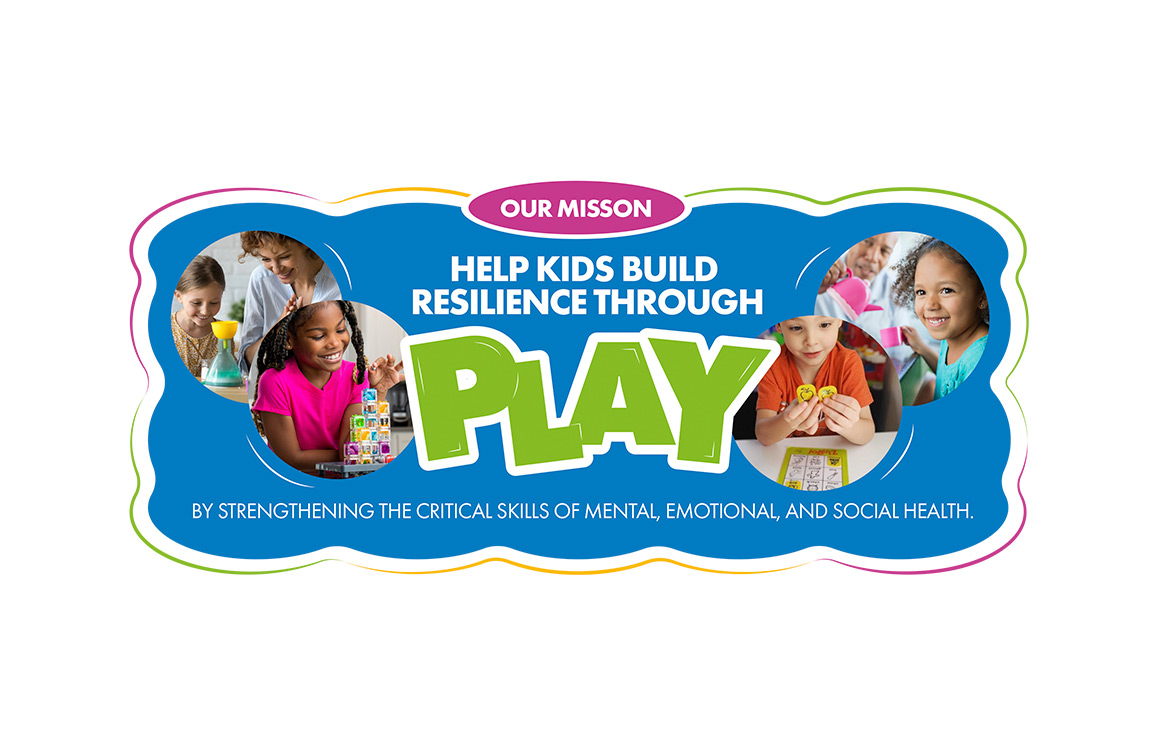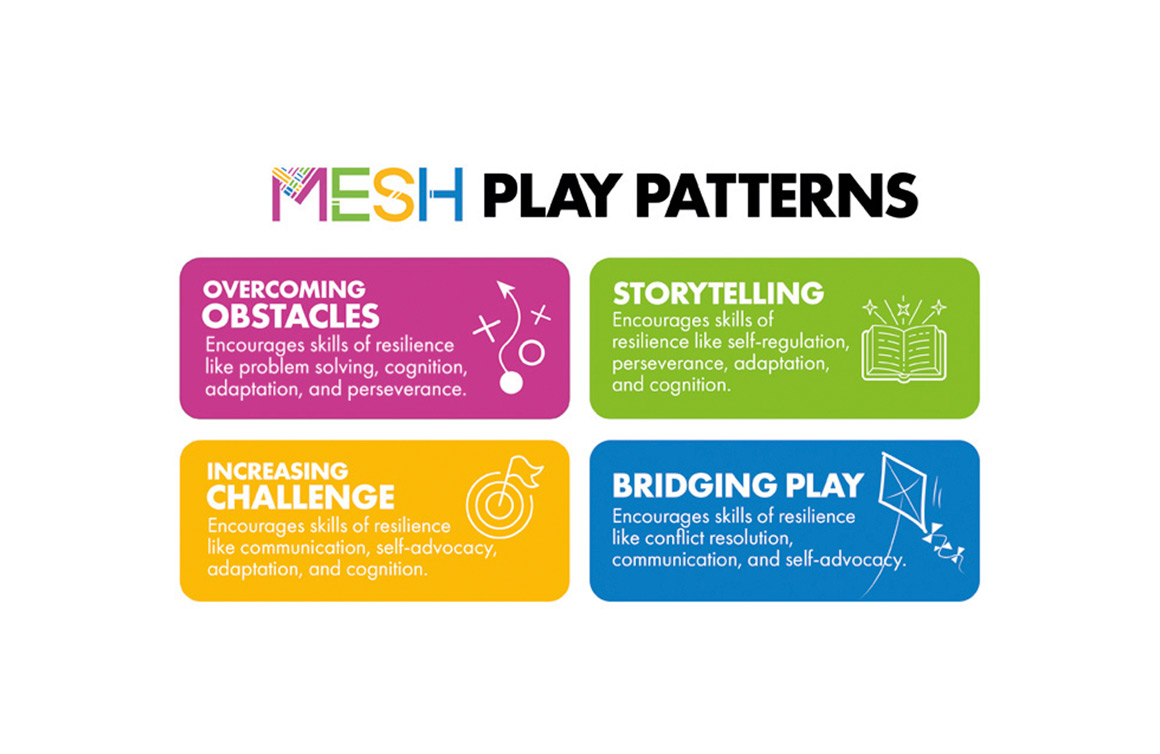MESH Helps is dedicated to fostering resilience in children through play. Can you explain the connection between play and mental health — how does play contribute to long-term emotional well-being?
Play is a powerful tool for building resilience in children. Through play, kids explore emotions, develop problem-solving skills, and practice social interactions. Play fosters creativity, confidence, and adaptability, all of which are critical skills for navigating life’s challenges. Research shows that play helps children process stress, build strong neural connections, and enhance their capacity to manage emotions. When play is purposeful, MESH (mental, emotional, and social health) skills learned during play help set the foundation for long-term emotional well-being, empowering children to thrive.

How has the mental health landscape for youth changed over the years?
Since 2010, youth mental health concerns have risen dramatically with increasing rates of anxiety, depression, and self-harm among children and teens. The pandemic further amplified these struggles, isolating youth from peers and disrupting routines, which are critical for emotional stability.
The youth mental health landscape has shifted significantly in recent years. Increased awareness has brought mental health challenges into the spotlight, reducing stigma and encouraging more open conversations. However, rates of anxiety, depression and stress among children and teens are continuing to rise and have underscored the urgent need for support.

How does MESH Helps accomplish its mandate?
MESH Helps has identified eight skills that build resilience in children and evaluates and certifies toys and games that foster those skills. Through its rigorous accreditation process, MESH Helps ensures that these products promote resilience by intentionally developing MESH Skills, including problem-solving, perseverance, adaptation, conflict resolution, self-regulation, self-advocacy, cognition, and communication.
By collaborating with toy companies, educators, and mental health experts, MESH Helps raises awareness about the importance of play as a tool for emotional well-being. Through advocacy, partnerships, and providing resources, MESH Helps highlights the connection between play and mental health, empowering children to build lifelong resilience.

Tell us about the MESH product accreditation program.
The MESH Accreditation program highlights toys and games that go beyond entertainment, offering children toys as tools to build skills of resilience through play. The MESH Accreditation seal serves as a trusted mark for parents, caregivers, teachers, therapists, and others seeking toys and games that foster well-being. Submissions are accredited by the independent experts at FUNdamentally Children who evaluate products using a framework based on the eight well-documented skills vital to youth mental, emotional, and social health: problem solving, perseverance, adaptation, conflict resolution, self-regulation, self-advocacy, cognition, and communication.
To earn MESH Accreditation, a toy or game must pass the basic assessment criteria, intentionally help children develop two or more of the eight crucial MESH Skills, and engage children age-appropriately during play. MESH Helps accepts submissions year-round from companies that recognize the profound influence toys have on children’s mental health.

What does 2025 hold for MESH Helps?
In 2025, MESH Helps aims to expand its impact by deepening its reach to consumers and fostering new partnerships. Key initiatives include accrediting an even broader range of toys and games that align with mental, emotional, and social health skills, ensuring more kids have access to tools that build resilience.

Explore the MESH Helps website, sign up for MESH updates, and follow the organization on LinkedIn.




